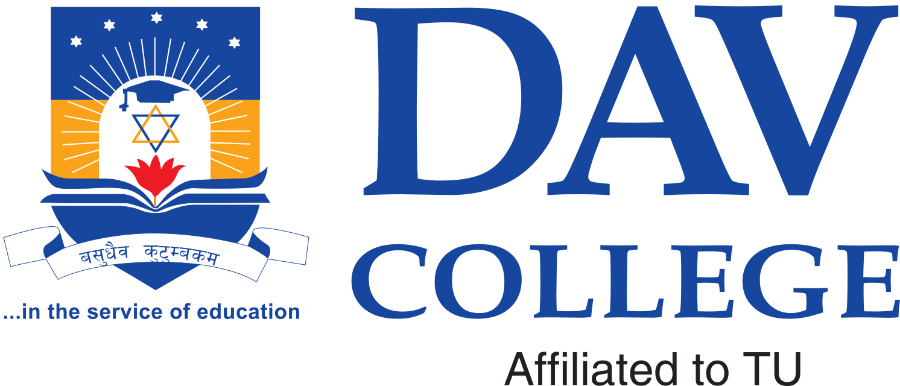Career Options After BSc Microbiology in Nepal (2025 Guide)
Published on 2025-07-24

If you're pursuing or have completed a BSc in Microbiology, you've chosen a field that's increasingly valuable in Nepal's growing healthcare, agriculture, food, and environmental sectors. But here’s the real question students ask once they hit the final year:
What can I do with a BSc Microbiology degree in Nepal?
Let’s break it down clearly—with no fluff, no jargon, and no long-winded theory. Whether you’re aiming for a quick job, higher studies, or research-based opportunities, this guide will help you map your future.
What is Microbiology—Beyond the Textbook?
Microbiology isn’t just about looking at bacteria under a microscope. It’s the study of all microorganisms—bacteria, viruses, fungi, protozoa—and how they impact everything from human health to agriculture and the environment. In a developing country like Nepal, with rising demand for diagnostic labs, biotech innovation, and food safety, microbiology holds immense promise.
Career Paths You Can Pursue After a BSc in Microbiology in Nepal
Here are the top career options after a BSc in Microbiology in Nepal, grouped by industry:
1. Clinical and Diagnostic Labs (Medical Microbiologist)
You’ll be working in hospitals or private labs, analyzing human samples to detect pathogens. It's practical, lab-based work—and essential to patient care.
Where you can work:
- National Public Health Laboratory
- Nepal Mediciti, Grande Hospital, HAMS
- Pathology labs like B&B, Samyak, Intrepid Diagnostic
Skills needed:
- Clinical sample handling
- Use of PCR, ELISA, and microscopy
- Strong understanding of infection control
2. Pharmaceuticals and Biotechnology
Nepal’s pharmaceutical industry is experiencing growth, and quality control is crucial. You can work in QC/QA (Quality Control/Assurance), R&D, or production.
Companies hiring:
- Deurali-Janta, Nepal Pharmaceuticals, Asian Pharmaceuticals, Quest Pharmaceuticals
Job roles:
- Microbiologist (QA/QC)
- Lab technician in product testing
- Biotech assistant in fermentation or enzymology labs
3. Food and Beverage Industry
Nepal’s food regulation authority legally requires food safety and microbial testing. Your job is to make sure what we eat isn’t contaminated.
Employers include:
- Bottlers Nepal (Coca-Cola)
- Chaudhary Group (CG Foods)
- Dairy, water bottling, and packaged food companies
Roles:
- Food safety officer
- HACCP supervisor
- Microbiological analyst
4. Public Health and Epidemiology
In collaboration with government or NGOs, microbiologists assist in controlling outbreaks, conducting disease surveillance, and promoting vaccination programs.
Ideal for:
- Those passionate about public health impact
- Working in remote field locations
Employers:
- WHO Nepal
- Save the Children
- Ministry of Health & Population
5. Academic and Research Institutions
If you’re research-oriented, consider working as a lab assistant, research associate, or project coordinator in research-based roles.
Where:
- Tribhuvan University Research Centres
- NAST (Nepal Academy of Science and Technology)
- Agricultural research labs (NARC)
6. Environmental Microbiology and Waste Management
Microbes play a massive role in bioremediation, composting, and environmental testing. Growing awareness in Nepal about pollution is creating job opportunities in the country.
Career roles:
- Environmental quality analyst
- Bioremediation specialist
- Waste management consultant
7. Higher Studies (MSc Options in Nepal and Abroad)
A BSc is often a stepping stone. You can specialize in:
- MSc Microbiology (TU, PU, KU, foreign universities)
- MSc Biotechnology, Genetics, Virology, Molecular Biology
- MPH (Master of Public Health)
International scope:
Studying abroad (especially in Europe, Japan, India, or the US) can expose you to funded research positions and unlock high-paying careers.
Career Snapshot: What’s the Earning Potential?
|
Career Path |
Starting Salary (Monthly, NPR) |
|
Lab Technician (Diagnostics) |
20,000 – 35,000 |
|
QC Analyst (Pharma/Food) |
25,000 – 45,000 |
|
Research Assistant |
30,000 – 50,000 |
|
NGO/Public Health Fieldwork |
40,000 – 60,000+ |
|
Academic/Teaching Assistant |
20,000 – 30,000 |
With experience and specialization (MSc or certifications), salaries can grow significantly—especially in international or high-end research roles.
Certifications That Can Give You an Edge
To stay competitive, here are some certifications to consider post-BSc:
- ISO 17025 Laboratory Certification
- HACCP and Food Safety Standards
- PCR and Molecular Biology Workshops
- Bioinformatics short-term training
- Public Health Data Analysis (SPSS, R, Python)
A Roadmap Example
Let’s say you’ve just graduated and want to work in Nepal, then go abroad:
Year 1–2:
Work in a diagnostic or pharmaceutical lab (build experience and save money)
Take part in workshops and research internships
Year 3–4:
Apply for MSc Microbiology abroad
Start publishing research papers or attending scientific conferences
Post-MSc:
Pursue PhD, join international research teams, or work in biotech/pharma globally
Final Thoughts: Is BSc Microbiology Worth It?
Yes—if you know where you're headed.
The key is specialization and staying updated. Microbiology isn't a field that guarantees fast money, but it's a profession that rewards curiosity, technical skill, and scientific contribution. With Nepal’s evolving landscape in healthcare, food, and environmental science, this degree opens the door to making a real impact.
Frequently Asked Questions
1. Is BSc Microbiology a good course in Nepal?
Yes. It’s a growing field, especially in diagnostics, food safety, pharma, and public health. With increasing investment in healthcare and biotechnology, demand for microbiologists is rising.
2. What should I study after a BSc in Microbiology in Nepal?
Popular options include MSc in Microbiology, Biotechnology, Public Health (MPH), Genetics, or even Bioinformatics. These open doors to research and higher-paying jobs both locally and internationally.
3. Can I get a government job after a BSc in Microbiology in Nepal?
Yes, through Lok Sewa Aayog (Public Service Commission), you can apply for roles like Lab Technician, Food Inspector, Public Health Officer, or Research Assistant, depending on your qualifications and experience.
